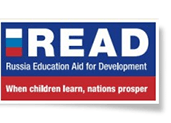Education has been a priority sector for public investment in Armenia since the late 1990s. The government has implemented a number of reforms to increase access and improve quality in the education system. However, despite significant improvements, the country’s education system still faces challenges in overall learning levels and in the size of equity gaps between rich and poor students. Armenia is committed to ensuring an efficient and effective allocation of resources in education. As a part of this commitment, serious effort has been given to creating new policies for Armenia’s system of measuring and monitoring learning outcomes.
In order to effectively implement these policies, the capacity of key stakeholder groups must be improved so that they can carry out assessment activities in an appropriate manner and link the results to education policies, practices, and decision making. Through support from the READ Trust Fund, an extensive training program was carried out in Armenia to equip these key stakeholder groups with greater capacity in measuring and using data on learning outcomes. Armenia was invited to become a READ-recipient country in 2011. Given the shortened timeline compared to other READ-recipient countries, the READ program in Armenia was implemented with the support of a single Bank-executed grant.
THE OBJECTIVES OF THE READ TRUST FUND PROGRAM IN ARMENIA DURING THE FIRST STAGE OF THE PROGRAM
to enhance the country’s capacity to design, implement, and use robust national and international assessment and examination systems;
to strengthen classroom assessment practices;
to provide channels for feedback, policy analysis, and recommendations for actions to improve student learning outcomes
For Armenia, the 2011 baseline results showed that while many of the necessary policies were in place, there was a need to focus on capacity building and improving implementation. With READ Trust Fund support, Armenia chose to primarily concentrate on building capacity across all four assessment types. By the end of READ, while the overall developmental ratings for Armenia’s student assessment system remained the same, significant progress had been made in strengthening the capacity of key stakeholders to effectively implement assessment activities across the different assessment types.
During the second stage of the Program in 2016-2019 Armenia implements project “Strengthening Educational Assessment Capacity to Support Better Learning Outcomes”.
FOCAL AREAS OF THE PROJECT
Enhancing stakeholder capacity to use assessment data to improve teaching and learning
High-stakes examination reform
Training and professional development of teachers in use of classroom assessment practices.
UP TO DATE ACHIEVEMENTS
Finalized the analysis of the pilot results of the Computer-Based Test (CBT) in Mathematics for Armenia’s Unified Entrance Examination (UEE)
Obtained licensing for the finalized package of the Master’s program in Educational Assessment from the Ministry of Education and Science
Conducted faculty development training for 22 university professors in Classroom Assessment and 19 professors in Measurement and Testing Upcoming Achievements
Provide resources, including professional literature and software, for the Master’s Program in Educational Assessment
Provide support to Yerevan State University of Languages and Social Science in carrying out a media campaign to promote the Master’s program in Educational Assessment
Develop a short promotional movie to attract applicants to the new Master’s program
Through support from the READ Trust Fund, an extensive training program is taking place in Armenia to equip various stakeholders with greater capacity in measuring and using data on learning outcomes. Through the training courses developed, both pre- and in-service teachers are acquiring the skills necessary to carry out formative and summative assessments in their classrooms. The effectiveness of Armenia’s assessment system will continue to improve as it develops a strong cadre of people across the entire education system with the requisite skills to implement assessment activities and use the results to inform their education practices.





